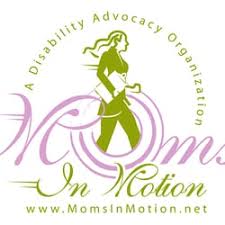March 2019
Spring Updates & Information
Public Comment OPEN!!
Due March 29, 2019
Have Your Say Today!
It’s YOUR Life!
Tell Virginia How YOU Want to Live It!
Attention Advocates!
Do you or someone you know get services through a DD Waiver? If so, you need to let your voice be heard today.
A federal rule, called the Home and Community Based Services (HCBS) Settings Rule, tells providers how services should be provided to help people getting services have full lives with their families, friends, and neighbors.
Virginia must write a State Transition Plan (STP) outlining how all providers in Virginia will become compliant with this rule.
The STP is ready for public comment! Virginia needs to hear from people who care about waivers and services -people like you!
First – look at the plan Here
Second – Share your suggestions and comments telling the state what is important to you. You can share your suggestions by emailing hcbscomments@dmas.virginia.gov
The deadline to share your thoughts is March 29, 2019
Here are a few of the most important things that need to be part of Virginia’s STP:
- People must be given a choice to live in their own home or apartment. Services must come to people where they live, regardless of what type of services and supports they need.
- Services must help people be independent and make their own decisions.
- Services must help people go to different places and do different things in their communities. The services follow the person in their life.
- Services must give people privacy, dignity, respect, freedom from being told what to do, and freedom from restraint.
- Services must help people find real jobs for real pay.
- People must have a choice about what services they get and who provides them.
Tell the state whether your services help you stay in charge of your own life or need to be changed so that Virginia is following the HCBS rule. Here are some things you could tell Virginia about:
- You could tell the state about where you live, especially if you live in a group home. Do you live where you want to live? Do you get to leave when you want to go out? Do you get to decide how you spend your money? Do you get to be around the people you want?
- You could tell the state about what you do during the day, especially if you go to a day program. What do you do there? Do you get to decide how to spend your day
You CAN advocate for the life that you want
Medicaid Disability Determination for your Teen
Heads up, especially for teens with disabilities turning 18! To be eligible for Medicaid (including Waivers) when a teen turns 18, it is very important that parents contact their local Department of Social Services to find out what is required to keep eligibility for the teen with a disability turning 18.
Because we have heard from many families around the state about different processes in different areas, The Arc of Virginia recommends that parents of 17 year olds contact their local Department of Social Services and find out what is required to maintain eligibility 120 days BEFORE the 18th birthday.
When you contact your Department of Social Services ask for information about “Disability Determination for Medicaid”.
Start early so you know what your local Department of Social Services requires and recommends.
Please contact us if you have any problems in your area.
DOJ Hearing April 23rd
Preparing for the End of the Settlement Agreement
DOJ Settlement Agreement Hearing –
There is Power in Numbers!
In 2012 Virginia entered into a Settlement Agreement with the Department of Justice following an investigation that found Virginia to be in violation of requirements to provide opportunities for people with developmental disabilities to live their lives and receive services in their communities. The expiration of this agreement is June 30, 2021.
The purpose of this Hearing is for the court to determine what the Commonwealth has complied with, as well as what items they have not complied with, in preparation for the end of the agreement.
The Arc and advocacy community encourages people to attend the hearing, to continue showing the court as well as lawmakers that the need for community based DD Waiver Services is huge, and they must direct funds and policy to address the ever growing waiting list for DD Waiver Services.
When: April 23rd at 9:00 AM
Where: Judge Gibney’s Courtroom 6000 located at 701 East Broad St, Richmond VA 23219
Rules to Enter Courtroom:
- Everyone must have a photo ID
- No electronic devices of any kind – no cell phones, Apple watches, etc..
- If anyone is on medical technology (vent, etc.), please contact the courthouse at 804.916.2221 for assistance
- IF YOU PLAN TO ATTEND, PLEASE EMAIL kwebb@thearcofva.org



